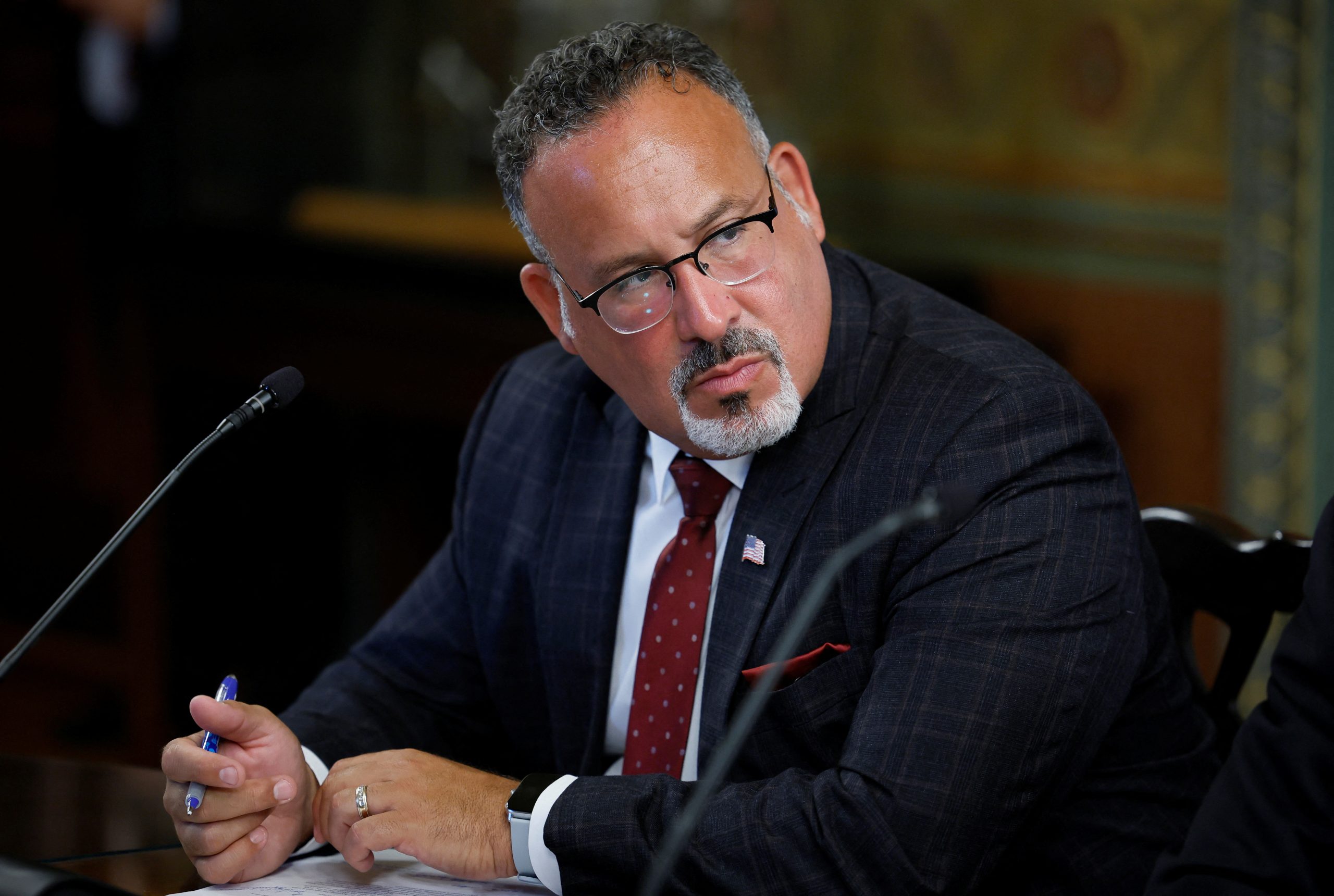
Willie R. Tubbs, FISM News
[elfsight_social_share_buttons id=”1″]
Education Secretary Miguel Cardona’s promise of clarity on student debt left swaths of the nation and media in a state of anxiousness over the weekend, regardless of their opinion on the forgiveness of federal student loans.
Appearing on NBC’s “Meet the Press,” Cardona said that President Joe Biden would make an announcement soon on the status of student debt.
“We’ve been talking daily about this, and I can tell you the American people will hear within the next week or so from the president and the Department of Education on what we’re going to be doing around that,” Cardona said.
The announcement set off a flurry of speculative articles in the legacy media and no small amount of anxiety for both borrowers and non-borrowers alike, but the reality is this statement could have almost gone unmade. The pause on federal student loan repayments is set to expire on Aug. 31, so the president has no choice but to say something within the next nine days.
Truly, the only novel claim to have emerged from Cardona’s interview was his promise that the announcement would come in advance of the deadline.
Biden’s choices, likewise, are not novel. These are the same four options that he or former President Donald Trump have faced each time the pause is set to expire. The president can either fully forgive all federal student debt, forgive some, forgive none, or extend the pause.
With midterm elections three months away, it would be almost unthinkable that Biden announces an end to the pause unless that end is accompanied by an announcement of major forgiveness of debts.
Wiping student debt would bring quite a lot of joy to the people currently faced with repaying them, but Jason Furman, a professor who teaches economics at Harvard, warned the results would be dire.
Student loan relief is not free. It would be paid for. Part of it would be paid for by the 87% of Americans who do not benefit but lose out from inflation. Part of it would be paid for by future spending cuts & tax increases—with uncertainty about who will bear those costs.
— Jason Furman (@jasonfurman) August 19, 2022
Biden, though, likely cannot afford to think about what Americans might or might not be able to afford in the future. Incremental or no forgiveness would likely spell disaster in the Democratic voter base and usher in a potentially even stronger wave of Republicans this fall, to say nothing of making a likely permanent dent in his reelection campaign.
It is not lost on pro-forgiveness advocates that Biden campaigned on a promise of “immediately” forgiving $10,000 in federal student debt for all borrowers, then working to reduce debt even more if elected.
As of this writing, Biden has not taken the $10,000 step. That might wind up being his major announcement, but $10,000 is not likely the number that will excite the base.
In May, 529 organizations — representing community, civil rights, education, climate, health, consumer, labor, professional, food and farm, and student advocacy groups — joined to write a letter demanding Biden forgive all federal debt immediately.
“Cancellation will boost household wealth, increase small business formation, and provide much-needed economic relief during this historic period of inflation,” the letter, shared by Student Debt Crisis Center, read. Today’s graduates face a dual crisis: in addition to the ongoing stagnation of wages, the pandemic has impacted their ability to earn income.
The easiest choice for Biden, although it would be punting on the issue, would be to extend the pause. This would at least keep both the pro- and anti-relief groups at bay beyond the midterms.
However, this would set Biden up for another round of facing a suspenseful nation as both proponents and opponents of forgiveness await a final ruling.
